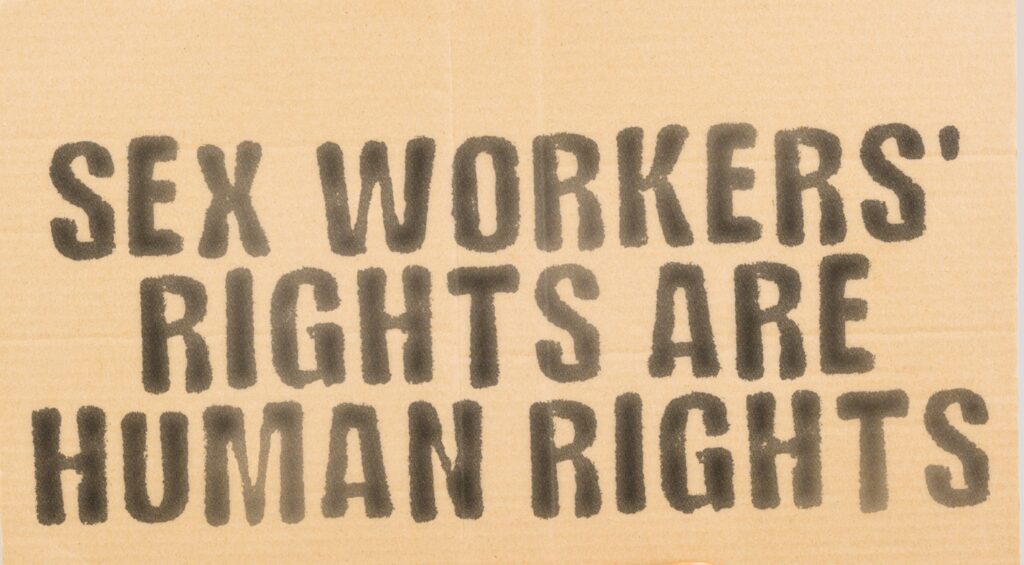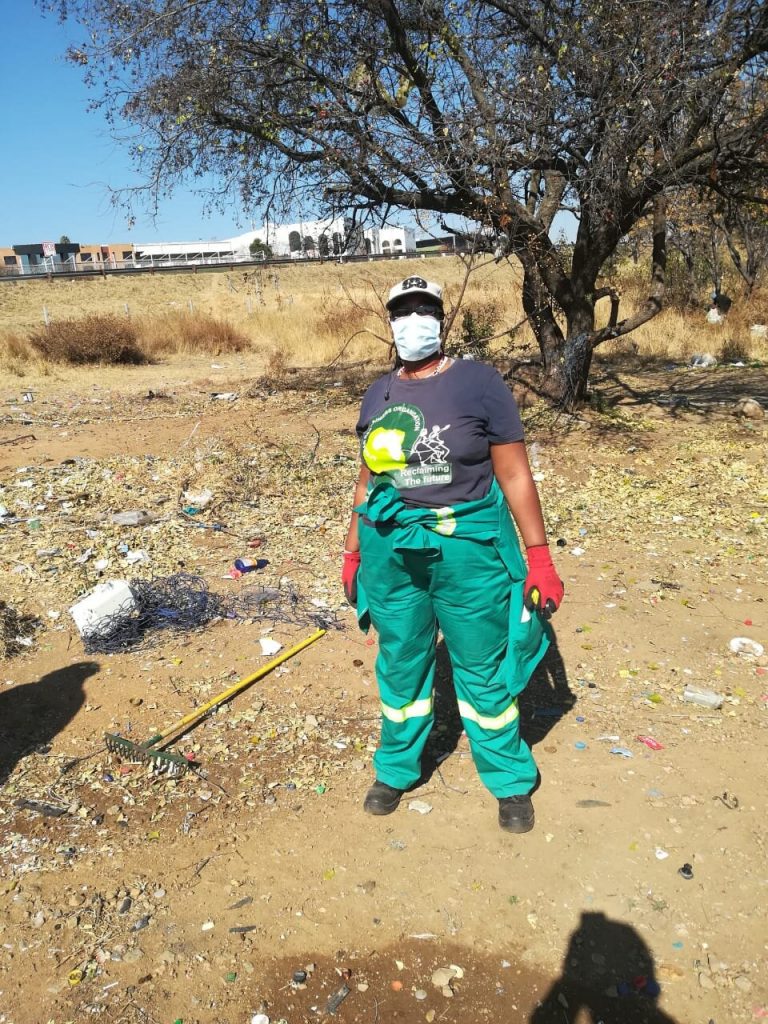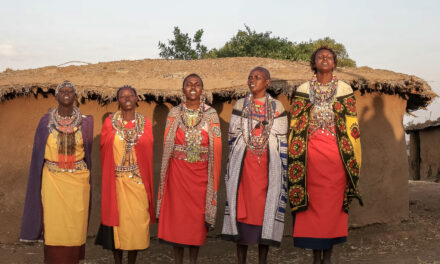Kim* shares a candid glimpse of her experience as a sex worker and the effects Covid-19 has had on the industry. She highlights the gains as well as the challenges intensified by the poor perception that stems from the stigma surrounding the sex industry. Her message is clear, concise and without hesitation. No justification is necessary for choosing to be a sex worker and decriminalisation of sex work will end the marginalisation of participants.
How and why did you get into sex work?
When I was accepted to university, my life changed dramatically. I was on the brink of earning life of luxury and success. All these opportunities were within reach, however, my family’s situation was still impoverished. It became difficult for me to focus in class. Yes, I was allowed to change my life, but I felt my family needed me more.
As the eldest child, I became the breadwinner at the age of 16 and going to university did not change that. I was exposed to ‘sugar daddy’ relationships through movies and social media, and I decided to take a chance at it. I found a website that matched young women with wealthy older men, supposedly for a compensated relationship.
After a week, I had several offers; none of them for the relationship I had initially anticipated. The first time I met up with someone from the website he took me to lunch and explained that he was married and only needed sex and nothing romantic at all. He proposed we meet twice a week during the day for sex at a hotel. At first, I was scared but on hearing how much he offered in return for this arrangement I obliged. He became my first client.
What type of sex work do you do?
I started with hook-ups but have since added using cams because of the pandemic.
What does a typical day look like for you?
A typical day entails waking up, effortlessly looking presentable and appealable enough to attract the type of clientele I serve.

What has been the biggest challenge for you working in the sex industry pre and post COVID-19?
Pre Covid-19 I had to juggle studies and work. I needed the money and obtaining a degree was even more important, so I spent less time at the student centre, less time sleeping and more time working.
Post Covid-19, well, Covid-19 has been a learning curve for us all, right? Sex worker or not we were hit hard! Covid-19 sure humbled us all and deprived us all in one way or the other, and the one thing we all have in common is that it took away opportunities to make money and empower ourselves.
What are the advantages of being in the sex industry?
I work on my terms, I don’t have a boss monitoring where or when I work and I write my own paycheque. My workplace could be anywhere I choose to conduct my business and I get to wear whatever it is that I choose. Think about it, many would kill to earn a living this way, I’m not saying it’s easy though or that anyone is cut out for it. It’s work, just like any other business or job, it is what you make of it, one of the biggest turn-offs though is the torment by criminalization.
How do you navigate the stigma surrounding sex work?
We live in a conservative society filled and ruled by hypocrites, so openly talking about sex work and being a sex worker is not easy. I try to engage others in educational conversations to dispel myths and stigma around sex work without actually outing myself. Sensitization around sex work is very important and the more we talk openly about sex work instead of shunning it behind closed doors, the better it is for many to understand what is and isn’t sex work.
How do you ensure your safety whilst working (mentally, physically, sexually, financially and health-wise)?
Healthwise, I maintain a healthy diet, looks are everything for my clients, especially the regulars. I also never consent to conduct business without the use of a condom. I encourage others that no amount of money is worth your health, so I insist on no condom, no business. To mentally stimulate my mind, I sing and dance, I enjoy singing but physically, dancing refreshes me and clears my head. Since affiliating with the Sisonke National Movement, I am aware of their helpline which offers support at no cost and refers to other organizations when the need arises. Financially, I have learnt to save and not waste my hard-earned cash on unnecessary spending.

How do you make sure your clients behave and respect the boundaries?
Sex work is no different from being a police officer! There are no guarantees as to how the next person will behave. You can never be too careful, so I take each client as they come and hope for the best.
Have you experienced any abuse whilst working?
Far too many times; especially from people who like to take advantage. Police officers are another challenge for my colleagues on the street though, thank goodness I have never been street-based because the stories narrated by my colleagues on the street are horrid.
How do you feel about the criminalization of sex work?
The criminalization of sex work is disheartening as we have lost far too many sex workers along the way. And the abuse and harassment from police officials are totally uncalled for.

How do you avoid legal trouble?
Sex workers can never avoid legal trouble because we are charged and labelled guilty even before setting foot in a courtroom. What irks me is learning from my colleagues, the senseless arrests, being kept in a prison cell overnight for no apparent reason.
What would decriminalization mean for you?
It would mean improved working conditions for us all. Improved access to the justice system and freedom of expression. Our rights as human beings will not be trampled upon in the manner in which they are currently being trampled upon.
Has being in the sex industry changed the way you understand sex, gender identity, sexuality or consent?
I grew up in a multi-dimensional society, but being among sex workers through my affiliation to Sisonke has further enlightened me to better understand all of the above.
What are some shocking assumptions about sex work that you have heard?
There are so many I could spend all day naming, so I’ll just mention the three most common ones. Rape, where people ask how a sex worker can be a victim of rape? Another is that all sex workers are poor black drunken women on the side of the road as well as that, every sex worker is a poor victim and that sex work fuels human trafficking.
What would you like people to understand about sex work?
Well, sex workers are human beings too and as much as they render a service that entails sexual pleasure, if it is not consensual then it is rape. Sex workers have families whom they support. Alcohol, drugs and any other enhancers are everyone’s personal preference and have nothing to do with being a sex worker. No one is forced into sex work, we choose to be sex workers. Not only because of our socio-economic status but also because we want to earn an income and not to be dependents on state grants which barely covers anyone’s accommodation. The minute a person is forced into the industry it is no longer sex work. In the ideal world, such cases should be reported to authorities, and perpetrators of such acts should be prosecuted and handed a harsh sentence.
From your perspective, how has the Covid-19 pandemic affected the sex industry?
It has wreaked immense havoc. It has exposed us all to harsher working conditions with little gain. While on the one hand, it has attracted more service providers who don’t seem to understand the harsh realities of this trade. People lost their office jobs and jumped into sex work hoping it would be an instant fix to their problems, but in the wake of Covid 19, it hasn’t been so. Therefore, Covid-19 among other injustices of the industry has been second to the criminalization of sex work, the greatest discrimination to reckon with.
What type of governmental support or aid have you qualified for or received during the pandemic?
None, remember we are the non-trialled criminals. Well, in this regard, not even those who are not criminalized benefitted from anything. One so-called newshound from a certain radio station who bothered to approach us like the sex work sector was very quick to note that we are not taxpayers therefore, why should we be considered for any form of relief or aid? That statement alone from that media house was a slap in the face and a reflection of the stigmatization and marginalization of sex workers.
Generally speaking, life has moved online during the pandemic and the same could be said for sex work for example with camming. People have lost jobs and in desperation have turned to virtual sex work to supplement income. What are your thoughts on this and what does it mean for veteran sex workers?
Virtual sex work has always been there, and many have been benefitting from it. However, this has been a part of sex work accessible to a handful of elite sex workers with elite clients. This, I can say has been an elitist market marginally tapped into. Access to the internet and all gadgets required has been associated with class and not many can afford to access this market. This in turn has put those who have already been at the bottom of the food chain even further down.
How best can allies/advocates for sex work support you?
The formation of organizations such as Sex Workers Educational Advocacy Taskforce and Sisonke has been a great starting point, at least as sex workers we have people who are backing us and fighting for our rights as sex workers. Another ideal situation would be to have the assistance of those segments of sex workers who are not criminalized such as pornography, stripping and adult entertainment toy shop owners and sex toy manufacturers to join in the stand against the criminalization of sex work.
Do you have any regrets about being a sex worker?
None at all.
*Not her real name




